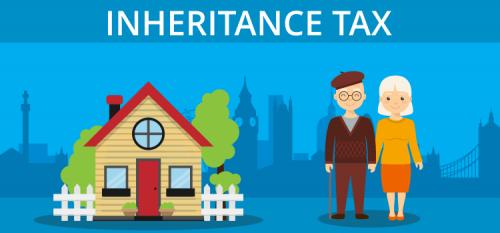What Is HMRC Inheritance Tax?

What Is HMRC
Inheritance Tax?
Inheritance Tax is a tax on the estate (the property, money
and the possessions) of someone who’s died, levied by the UK government. Do You
Know?-London and the South pay much higher inheritance tax than the rest of the
world. In 2017/18, the UK government collected £5.2 billion death tax, it seems
more families are getting caught in the net. The standard tax rate is 40% on
inherited property.
You Don’t Have To Pay
Any Inheritance Tax If Either:
1.
If net worth of your estate is below Nil Rate
Band(NRB) or IHT threshold i.e. £325,000 or
2.
If you gave away everything above the threshold
to your spouse or civil partner .If you’re married or in a civil partnership.
Your threshold can increase to £450,000, if you pass your
home to your children or grandchildren.
The combined inheritance tax (IHT) threshold for married
couples i.e. £650,000.
Inheritance Tax
Threshold & The Residence Nil Rate Band (RNRB)
How much can you inherit before tax in UK? The RNRB is also
known as home allowance, introduced in April 2017.Inheritance Tax Threshold
(IHT) or nil rate band (NRB) means that estate are exempt from IHT up to a
certain level or threshold. If the estate’s value is above the threshold (£325,000),
you need to pay standard inheritance tax rate i.e. 40%.
Inheritance Tax
Relief, Gifts & Exemptions:
Inheritance Tax can be reduced to 36% on some assets if you
leave 10% or more of the net value to charity in your will.
While you’re alive, you can give away assets or cash, worth-
£3,000 in a tax year without it being added to the value of your estate for
Inheritance Tax (IHT).
Some gifts and property are exempt from inheritance tax such
as wedding gifts, business assets and charitable donations.
Relief might be available, if your estate includes farms or
woodlands
Inheritance Tax
Rate-Who pays it?
The standard inheritance tax rate is 40%, charged on assets
which are above the declared threshold i.e. £325,000.
Example:If your estate is worth £625,000 and your tax-free
inheritance tax is £325,000. The inheritance tax charged will be 40% of
£300,000(£625,000-£325,000).The IHT would be £120,000.
Money raised from the sale of the assets or funds from the
estate is used to pay Inheritance tax to HMRC.In case,if there is a will, the
person dealing with the estate “executor” is responsible to arrange inheritance
tax and in case of no will by the deceased, the administrator of the estate has
to make arrangements for the payment of inheritance tax. HMRC will charge
interest, if inheritance tax is not paid by the end of the sixth month after
person’s death.
Post Your Ad Here


Comments